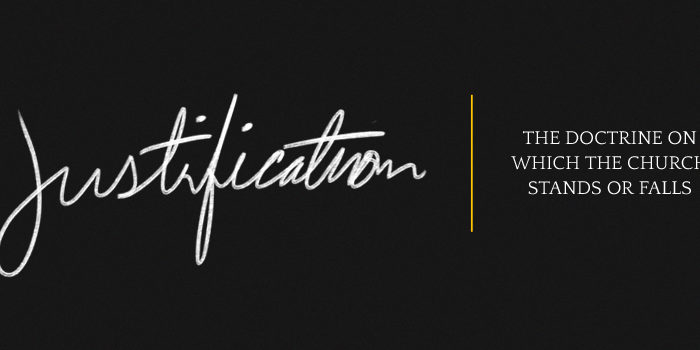
What does the Heidelberg Catechism say about justification?
In the most recent issue of Credo Magazine, “Justification: The Doctrine On Which the Church Stands or Falls,” we drew your attention to this central doctrine of the Christian faith. Occasionally we like to take the opportunity to listen to voices of the past in order to better understand Christian doctrine. And so we looked to the Heidelberg Catechism to see what this Reformed confession had to say about justification. Here is what we found:
What does the Heidelberg Catechism say about justification?
60. Q. How are you righteous before God?
Only by true faith in Jesus Christ. Although my conscience accuses me that I have grievously sinned against all God’s commandments, have never kept any of them, and am still inclined to all evil, yet God, without any merit of my own, out of mere grace, imputes to me the perfect satisfaction, righteousness, and holiness of Christ. He grants these to me as if I had never had nor committed any sin, and as if I myself had accomplished all the obedience which Christ has rendered for me, if only I accept this gift with a believing heart.
61. Q. Why do you say that you are righteous only by faith?
Not that I am acceptable to God on account of the worthiness of my faith, for only the satisfaction, righteousness, and holiness of Christ is my righteousness before God. I can receive this righteousness and make it mine my own by faith only.
62. Q. But why can our good works not be our righteousness before God, or at least a part of it?
Because the righteousness which can stand before God’s judgment must be absolutely perfect and in complete agreement with the law of God, whereas even our best works in this life are all imperfect and defiled with sin.
63. Q. But do our good works earn nothing, even though God promises to reward them in this life and the next?
This reward is not earned; it is a gift of grace.
64. Q. Does this teaching not make people careless and wicked?
No. It is impossible that those grafted into Christ by true faith should not bring forth fruits of thankfulness.
Read Credo Magazine today!
Justification: The Doctrine on which the Church Stands or Falls
While we could point to many different factors that led the sixteenth century Protestant Reformers to break from Rome, perhaps one that would be at the very top of the list is the doctrine of justification by faith alone. For Luther and Calvin, this doctrine is the very hinge on which the Christian religion turns. In part this is because sola fide is what sets Protestants apart. While every other religion puts something of man into the equation, Protestantism removes man’s works from the justification formula altogether. Therefore, the “sola” in sola fide makes all the difference in the world.
With over 2,000 years of church history in our rear view mirror, it appears that sola fide is a doctrine that comes under discussion in every generation. Our generation is no exception. Much dialogue continues over the New Perspective on Paul, Protestant and Catholic statements of agreement, and the relationship between justification and the Christian life. In this issue I am proud to welcome some of the finest thinkers on the subject in order to better understand what Scripture says about how sinners can be made right with a holy God.
Contributors include Thomas Schreiner, Michael Allen, Michael Horton, Philip Ryken, J.V. Fesko, Matthew Barrett, Korey Maas, Guy Waters, Brian Vickers, Fred Zaspel, and many others.

